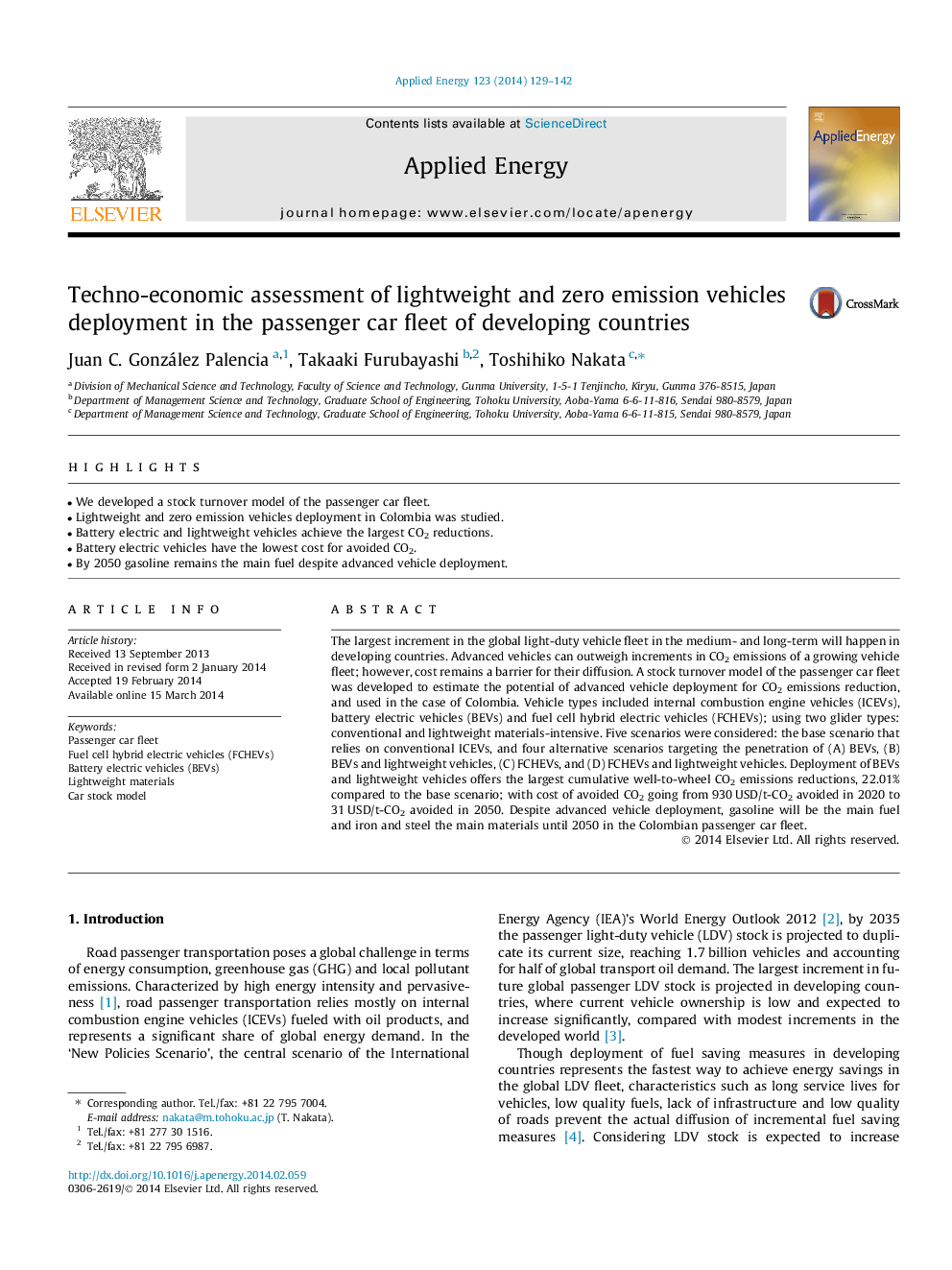| کد مقاله | کد نشریه | سال انتشار | مقاله انگلیسی | نسخه تمام متن |
|---|---|---|---|---|
| 6690358 | 501905 | 2014 | 14 صفحه PDF | دانلود رایگان |
عنوان انگلیسی مقاله ISI
Techno-economic assessment of lightweight and zero emission vehicles deployment in the passenger car fleet of developing countries
ترجمه فارسی عنوان
ارزیابی تکنولوژیکی در مورد استفاده از وسایل نقلیه وزن سبک و بدون صفر در ناوگان اتومبیل های مسافری کشورهای در حال توسعه
دانلود مقاله + سفارش ترجمه
دانلود مقاله ISI انگلیسی
رایگان برای ایرانیان
موضوعات مرتبط
مهندسی و علوم پایه
مهندسی انرژی
مهندسی انرژی و فناوری های برق
چکیده انگلیسی
The largest increment in the global light-duty vehicle fleet in the medium- and long-term will happen in developing countries. Advanced vehicles can outweigh increments in CO2 emissions of a growing vehicle fleet; however, cost remains a barrier for their diffusion. A stock turnover model of the passenger car fleet was developed to estimate the potential of advanced vehicle deployment for CO2 emissions reduction, and used in the case of Colombia. Vehicle types included internal combustion engine vehicles (ICEVs), battery electric vehicles (BEVs) and fuel cell hybrid electric vehicles (FCHEVs); using two glider types: conventional and lightweight materials-intensive. Five scenarios were considered: the base scenario that relies on conventional ICEVs, and four alternative scenarios targeting the penetration of (A) BEVs, (B) BEVs and lightweight vehicles, (C) FCHEVs, and (D) FCHEVs and lightweight vehicles. Deployment of BEVs and lightweight vehicles offers the largest cumulative well-to-wheel CO2 emissions reductions, 22.01% compared to the base scenario; with cost of avoided CO2 going from 930Â USD/t-CO2 avoided in 2020 to 31Â USD/t-CO2 avoided in 2050. Despite advanced vehicle deployment, gasoline will be the main fuel and iron and steel the main materials until 2050 in the Colombian passenger car fleet.
ناشر
Database: Elsevier - ScienceDirect (ساینس دایرکت)
Journal: Applied Energy - Volume 123, 15 June 2014, Pages 129-142
Journal: Applied Energy - Volume 123, 15 June 2014, Pages 129-142
نویسندگان
Juan C. González Palencia, Takaaki Furubayashi, Toshihiko Nakata,
